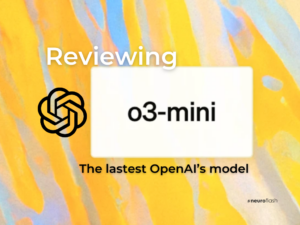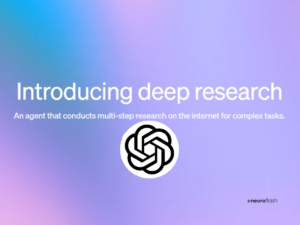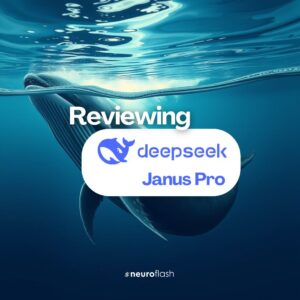Over the years, HR professionals had to grow accustomed to new tools and trends in order to adapt to changes in the world of work and evolving employee expectations. If there is one such technology that is more than likely to stay part of our working habits in the long run, it is Artificial Intelligence.
As IA solutions are profoundly reshaping the way we work, they are also expected to influence how we manage employees on a day-to-day basis. How can HR professionals benefit from HR tools in their staff management practices? Here is everything you need to know.

1. Customizing Onboarding Practices
Employee onboarding can be an administrative nightmare for the HR department. AI tools can automate part of the administrative tasks such as sending automated emails with the necessary documentation, generating IDs and accesses for the new hire, and verifying employee documents.
On top of that, Artificial Intelligence can help HR pros and managers customize the onboarding experience by sending personalized emails, suggesting onboarding plans adapted to the recruit’s personality and needs, and building appropriate training plans. AI chatbots are also great for quickly answering frequently asked questions during the onboarding period, eliminating the need to exchange multiple emails. Furthermore, mentoring software can be integrated to provide continuous support and guidance to new hires, ensuring a smooth transition into the company culture.
Considering that customizing employee onboarding can be a daunting task for the HR department, efficient AI tools can and should be used to gain time and ensure a positive experience for new hires.

2. Elevating Performance Management
Did you know that 77% of HR executives believe performance reviews do not adequately reflect employee performance? While we can all agree that performance management is, in theory, crucial for every organization, statistics show that our practices in that regard are often ineffective and time-consuming.
That’s where Artificial Intelligence comes into play. On top of identifying high-performing or struggling employees, it can directly analyze Key Performance Indicators and past performance to share recommendations and automate the appraisal process. When used effectively, AI performance management tools can provide accurate reviews of employee performance across the entire organization. Of course, you still have to share constructive feedback and give proper recognition and support to elevate your teams’ productivity.

3. Optimizing Workforce Planning
There is no denying that human resource management is a highly strategic function in your company. After all, talent management is meant to anticipate organizational needs and long-term goals in terms of workforce acquisition, training, productivity and retention.
AI solutions are a great help when it comes to setting up accurate workforce planning strategies as they predict future demands in relation to business objectives, HR strategies in place, and market trends. As such, they can help you pinpoint where you need to allocate or adjust resources to stay on the right track and reach organizational goals more effectively.
4. Making Better Strategic Decisions
AI tools can help HR professionals be more proactive in their strategic decisions and anticipate shifting needs and gaps, be it in terms of employee development and productivity or talent acquisition. For instance, powerful algorithms can be used to correlate drops in performance and lack of training and suggest appropriate solutions such as personalized development plans.
HR pros can also use Artificial Intelligence to support the plans they want to share during executive meetings, further placing them at the center of organizational strategies and strengthening the positive impact they can have on the work environment at large.
5. Automating Tasks to Focus on Employee Well-Being
Beyond strategic decisions and workforce planning, one cannot forget human resources’ primary mission: to ensure a positive employee experience throughout the entire organization. On a day-to-day basis, Artificial Intelligence is particularly helpful in automating administrative tasks, giving more time and energy for HR pros to focus on employee well-being and solve potential human issues, concerns, and conflicts in the workplace.
Monitoring the work environment and making sure that it is conducive to healthy relationships and productivity is a huge project in and of itself: AI tools, often integrated into modern HRIS software, can manage low-value, repetitive tasks while the HR department takes on more strategic and complex actions that require social skills and a human touch.
6. Reducing Burnout Risks in the HR Department
Burnout is at an all-time high among HR professionals, and their workload is increasing and complex, with new challenges arising every day. As recruiting and retaining HR staff gets more complicated, AI tools can be used to reduce their stress levels and ensure that they, too, can benefit from work-life balance, healthy work schedules, and exceptional employee experience.
Administrative task automation, strategic insights and customized talent management are among the benefits Artificial Intelligence can bring to the workplace. They make all the difference in HR professionals’ daily lives by reducing their workload, increasing their efficiency and ensuring they stay on top of the latest trends in terms of employee management.
As we learn to use Artificial Intelligence in our daily work, its benefits for HR management become increasingly obvious and crucial to ensuring effective practices. It bears reminding that AI technology is not meant to replace HR professionals but rather help them reach their highest strategic potential and personalize the employee experience.
Article written by Morgane Lança, SEO Content Manager and Writer at Folks.










